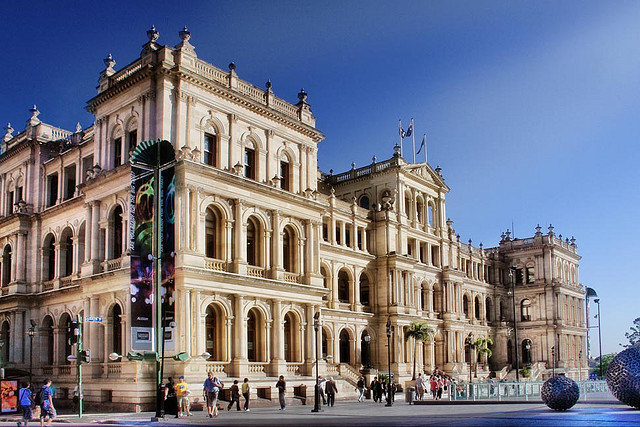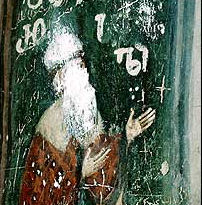|
Court Officials Of The Kingdom Of Georgia
The court officials of the Kingdom of Georgia, were in charge of the royal court. The chronological lists below are not exhaustive, since there exist large gaps in the historical record. Majordomo The majordomo (Georgian: msakhurtukhutsesi) was the chief official of the court. Chancellor The Chancellor (Georgian: ''mtsignobartukhutsesi'') was the head of the government. Treasurer The treasurer (Georgian: m''echurchletukhutsesi'') was the official responsible for running the treasury. Master of ceremonies The master of ceremonies (Georgian: '' mandaturtukhutsesi'') was responsible for conducting ceremonies such as coronations and receptions of foreign ambassadors. Marshal The marshal (Georgian: ''amirspasalar'') had charge of the royal stables. Tutor The tutor (Georgian: a''tabeg'') came to be denominated as Samtskhe-Saatabago, the latter element meaning "of the atabags".Toumanoff, Cyril (1967). ''Studies in Christian Caucasian History'', p. 438, ... [...More Info...] [...Related Items...] OR: [Wikipedia] [Google] [Baidu] |
Kingdom Of Georgia
The Kingdom of Georgia ( ka, საქართველოს სამეფო, tr), also known as the Georgian Empire, was a medieval Eurasian monarchy that was founded in circa 1008 AD. It reached its Golden Age of political and economic strength during the reign of King David IV and Queen Tamar the Great from 11th to 13th centuries. Georgia became one of the pre-eminent nations of the Christian East and its pan- Caucasian empire and network of tributaries stretching from Eastern Europe to Anatolia and northern frontiers of Iran, while also maintaining religious possessions abroad, such as the Monastery of the Cross in Jerusalem and the Monastery of Iviron in Greece. It was the principal historical precursor of present-day Georgia. Lasting for several centuries, the kingdom fell to the Mongol invasions in the 13th century, but managed to re-assert sovereignty by the 1340s. The following decades were marked by the Black Death, as well as numerous invasions under ... [...More Info...] [...Related Items...] OR: [Wikipedia] [Google] [Baidu] |
Treasury
A treasury is either *A government department related to finance and taxation, a finance ministry. *A place or location where treasure, such as currency or precious items are kept. These can be state or royal property, church treasure or in private ownership. The head of a treasury is typically known as a treasurer. This position may not necessarily have the final control over the actions of the treasury, particularly if they are not an elected representative. The adjective for a treasury is normally treasurial. The adjective "tresorial" can also be used, but this normally means pertaining to a ''treasurer''. History The earliest found artefacts made of silver and gold are from Lake Varna in Bulgaria dated 4250–4000 BC, the earliest of copper are dated 9000–7000 BC. The term ''treasury'' was first used in Classical times to describe the votive buildings erected to house gifts to the gods, such as the Siphnian Treasury in Delphi or many similar buildings erecte ... [...More Info...] [...Related Items...] OR: [Wikipedia] [Google] [Baidu] |
Avag-Sargis Mkhargrdzeli
Avag-Sargis Zakarian or Avag-Sargis Mkhargrdzeli () (died 1268 AD) was a 13th century Georgian noble of Armenian descent bearing titles of ''mandaturtukhutsesi'' and ''amirspasalar'' of Georgia Georgia most commonly refers to: * Georgia (country), a country in the Caucasus region of Eurasia * Georgia (U.S. state), a state in the Southeast United States Georgia may also refer to: Places Historical states and entities * Related to the .... He is known for signing famous "Rkoni Charter". Sources *Shoshiashvili, N., Georgian Soviet Encyclopedia, vol. 7, p. 271. Tbilisi, 1984 *Ivane Javakhishvili, History of Georgian nation, Volume II-III, Tbilisi, 1965-1966 *Джанашиа С. Н., Об одном примере искажения исторической правды ... , Тб., 1947; Nobility of Georgia (country) 13th-century people from Georgia (country) House of Mkhargrdzeli 1268 deaths {{Georgia-hist-stub ... [...More Info...] [...Related Items...] OR: [Wikipedia] [Google] [Baidu] |
Zakaria II Mkhargrdzeli
Zakare Zakarian ( hy, Զաքարե Զաքարյան or Զաքարե Երկայնաբազուկ, ) or Zakaria II Mkhargrdzeli (, ), was an Armenian general of Queen Tamar of Georgia army during the late 12th and early 13th centuries. He was the ruler of feudal lands in the Kingdom of Georgia. Biography Zakaria along with his father Sargis supported the rebellion of Prince Demna and the Orbeli family in 1177, however they soon sided with George III and fought for the monarchy against the insurgents. The uprising was suppressed, and King George III elevated the Zakarid–Mkhargrdzeli family. Following the death of George III, Queen Tamar elevated Sargis Mkhargrdzeli — a well-born valorous man, well-trained in battle — to the office of ''Amirspasalar'' ( Lord High Constable) and granted him possessions over Lori (which was deprived of from Kubasar). She gave presents to his elder son, Zakaria, and his younger son, Ivane, and she made him a member of the Darbazi. During a r ... [...More Info...] [...Related Items...] OR: [Wikipedia] [Google] [Baidu] |
Chiaber
Chiaber ( ka, ჭიაბერი) was a Georgian noble ( didebuli) from eastern Georgia in the 12th century. They were a foster son of George III of Georgia. In 1177 during the rebellion of Prince Demna and the Orbeli family, Chiaber – "honest and faithful man" – supported the monarchy against the insurgents. The uprising was suppressed, and King George III elevated him to the office of '' Mejinibetukhutsesi'' (High Constable), thus becoming the second man after ''Amirspasalar''. Following the death of George III, Queen Tamar elevated him to the office of ''Mandaturtukhutsesi'' ( Interior ministry) and handed him a golden sceptre and dressed him in precious garments. Around 1190-1191 he was even granted office of ''Amirspasalar'' for a short time. During a revolt of treasurer Qutlu Arslan and Tamar's disgraced husband, George the Rus, Chiaber was one of the few nobles who remained loyal to the Queen. For this he was kindly rewarded; he was given the town and fortress Zhi ... [...More Info...] [...Related Items...] OR: [Wikipedia] [Google] [Baidu] |
Coronation
A coronation is the act of placement or bestowal of a crown upon a monarch's head. The term also generally refers not only to the physical crowning but to the whole ceremony wherein the act of crowning occurs, along with the presentation of other items of regalia, marking the formal investiture of a monarch with regal power. Aside from the crowning, a coronation ceremony may comprise many other rituals such as the taking of special vows by the monarch, the investing and presentation of regalia to the monarch, and acts of homage by the new ruler's subjects and the performance of other ritual deeds of special significance to the particular nation. Western-style coronations have often included anointing the monarch with holy oil, or chrism as it is often called; the anointing ritual's religious significance follows examples found in the Bible. The monarch's consort may also be crowned, either simultaneously with the monarch or as a separate event. Once a vital ritual among the wo ... [...More Info...] [...Related Items...] OR: [Wikipedia] [Google] [Baidu] |
Mandaturtukhutsesi
''Mandaturtukhutsesi'' ( ka, მანდატურთუხუცესი) was the Chief overseer of the court, in charge of the palace guard and matters of protocol. The "''Mandaturtukhutsesi''" was aided by an " Amirejibi" and a "Mandatur" and as a symbol of his office, he carried an "Arghani" (sceptre) presented by the monarch. See also *Court officials of the Kingdom of Georgia The court officials of the Kingdom of Georgia, were in charge of the royal court. The chronological lists below are not exhaustive, since there exist large gaps in the historical record. Majordomo The majordomo (Georgian: msakhurtukhutsesi) w ... References Noble titles of Georgia (country) Georgian words and phrases {{italic title ... [...More Info...] [...Related Items...] OR: [Wikipedia] [Google] [Baidu] |
Ivane I Jaqeli
Ivane-Qvarqvare Jaqeli-Tsikhisjvareli ( ka, ივანე-ყვარყვარე ჯაყელი-ციხისჯვარელი; died ) was a Georgian nobleman of the Jaqeli family, who served as '' eristavi'' ("duke") and '' spasalar'' ("constable") of Samtskhe in the early 13th century. Rising to prominence thanks to his loyal service to Queen-Regnant Tamar of Georgia, Ivane Jaqeli's long career spanned pivotal years in the history of medieval Georgia, through the "Golden Age" to the crisis and decline under the Mongol hegemony. Ivane, otherwise known as Qvarqvare, first appears in the medieval Georgian chronicles as bearing the surname Tsikhisjvareli, derived from the territorial epithet "of Tsikhisjvari". During a revolt of Queen Tamar's disgraced husband, George the Rus', around 1191, Ivane was one of the few nobles of Samtskhe who remained loyal to the queen. He might have become duke and constable of Samtskhe after the previous occupant of these offices, ... [...More Info...] [...Related Items...] OR: [Wikipedia] [Google] [Baidu] |
Shota Rustaveli
Shota Rustaveli ( ka, შოთა რუსთაველი, c. 1160 – after c. 1220), mononymously known simply as Rustaveli, was a medieval Georgian poet. He is considered to be the pre-eminent poet of the Georgian Golden Age and one of the greatest contributors to Georgian literature. Rustaveli was the author of ''The Knight in the Panther's Skin'', a Georgian national epic poem. Biography Little, if anything, is known about Rustaveli from contemporary sources. Shota Rustaveli was born in 1166. He started serving Queen Tamar as a Minister of Finance in 1191. His poem itself, namely the prologue, provides a clue to his identity: the poet identifies himself as "a certain Rustveli." "Rustveli" is not a surname, but a territorial epithet that can be interpreted as "of/from/holder of Rustavi". Later Georgian authors from the 15th through 18th centuries are more informative; they are almost unanimous in identifying him as Shota Rustaveli, a name that is preserved on a fresc ... [...More Info...] [...Related Items...] OR: [Wikipedia] [Google] [Baidu] |


